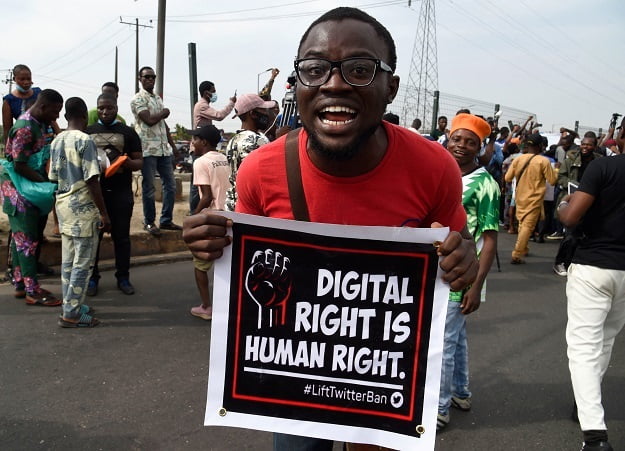2024 has begun with the Senegalese and Sudanese governments shutting down the internet in parts of their countries. This bad practice is unfortunately just picking up from last year. As 2023 came to a close, 55 cases of internet restrictions were still ongoing. 51 of the cases were restrictions on social media or messaging apps that were introduced by 24 countries and territories.
Internet Restrictions in Africa
According to a recent report, 330 million people in Africa were affected by internet shutdowns last year. Surfshark’s Internet Shutdown Tracker yearly recap shows that there were 17 internet restrictions recorded in Africa in 2023. Senegal top the list of bad actors with 5 of the 17 restrictions taking place in the West African country. This is despite the country often carrying the mantle of the “regions most stable democracy”.
Indeed, the shutdowns in Senegal were due to efforts by the government to stiffle democracy. The restrictions happened following the arrest and sentencing of opposition leader Ousmane Sonko. This year’s shutdown was announced immediately after the government put off elections.
Ethiopia, Guinea, and Mauritania all had 2 separate shutdowns in the year. Chad, Gabon, Somalia, Tanzania and Zimbabwe all had 1 restriction occurring in 2023. The Tanzanian industry regulator followed up with a directive to have all VPN users registered.
In Ethiopia, the shutdowns were in response to protests against the government’s efforts to divide the Ethiopian Orthodox Church, leading to restrictions on platforms like YouTube, Facebook, Telegram, and TikTok. Ethiopian restrictions on social media platforms have been in place since February 2023.
Global Internet Shutdowns
The restrictions are clearly a tool used by governments to censor public conversations and limit freedom of speech and association. Nearly two-thirds of internet restrictions in 2023 were related to protests, impacting 1.7 billion people across 8 countries.
“Internet shutdowns are commonly used by autocratic regimes to hinder communications, thwart protest organization, and cut people off from loved ones in times of political unrest. During elections, internet restrictions limit the spread of information about candidates, eroding the democratic integrity of elections. Furthermore, amid violent government crackdowns, internet blackouts can effectively prevent the dissemination of critical information regarding human rights abuses to the international community.”, says Lina Survila, Surfshark spokeswoman.
Restrictive measures by governments included limiting access to social media platforms and implementing an internet curfew. Globally, there were 76 internet restrictions. Majority of them were recorded in Asia. Iran imposed a record number of 29 cases of internet restrictions. Surprisingly India, a tech giant and the world’s “largest democracy” was second. As a result of protests, India recorded 8 instances in 2023.
Social Media Restrictions
Out of analyzed (7) social media platforms and messaging apps, Telegram was blocked most frequently: 7 governments restricted it on 8 occasions in 2023. In terms of duration, TikTok and YouTube faced the most prolonged restrictions, averaging 203 and 123 days, respectively.
While Kenya is not in the analysis, the country experienced restrictions to telegram that lasted for about a month. This was never officially confirmed by authorities but was attributed to the ongoing national examinations at the time.
Twitter, Facebook, and YouTube remain restricted in Pakistan amid tensions over the opposition leader Imran Khan. He was recently sentenced to 10 years in prison.
—Sakwa Kombo
(Techweez)

